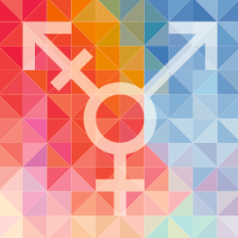Workshop Wednesday | Intimate Partner Violence in our community | 9-20-23, 7PM-9PM
For our September 20th Workshop Wednesday we’ll be starting a series on Intimate Partner Violence in our community with Beck Cyr presenting. This session is aimed at individuals who may experience or know of someone experiencing IPV in the trans+ community.
As noted in HRC’s resource “Understanding Intimate Partner Violence in the LGBTQ+ Community”
Intimate Partner Violence (IPV), also known as domestic violence, partner abuse, or dating violence, refers to the various means of control used by an abuser against their partner in an intimate relationship. According to the Centers for Disease Control, IPV includes many forms of abuse, including “physical violence, sexual violence, stalking and psychological aggression (including coercive tactics) by a current or former intimate partner (i.e., spouse, boyfriend/girlfriend, dating partner, or ongoing sexual partner).” Anyone—regardless of their identity, or that of their partner—can experience IPV.
The prevalence of IPV in the LGBT community may surprise you. Again, according to HRC’s resource “Understanding Intimate Partner Violence in the LGBTQ+ Community”
>Transgender people experience IPV at rates even higher than their cisgender peers; an analysis of the 2015 United States Transgender Survey found that more than half (54%) of all trans and non-binary people have experienced IPV at some point in their lifetimes.
>LGBTQ+ women, trans people and non-binary people are equally as likely, if not more so, than their cisgender and heterosexual peers to have experienced IPV at some point in their lifetimes
>LGB women are significantly more likely than straight women to have ever experienced IPV in their lifetime, reported by 61% of bisexual women, and 44% of lesbian women, compared with 35% of straight women.
>A third of bisexual men (37.3%), versus a little over a quarter (29%) of heterosexual men, had experienced IPV in their lifetime
>Gay men were slightly less likely than heterosexual men to experience this (reported by 26%)
The why of IPV in the LGBT community is also telling, according to HRC’s resource “Understanding Intimate Partner Violence in the LGBTQ+ Community”
IPV, like all forms of abuse, is about maintaining power and control, be it through physical, sexual, financial, or emotional threats and violence. IPV can occur regardless of a victim or perpetrator’s sexual orientation, gender identity or relative strength, and any type of person can be a victim or perpetrator of IPV regardless of their identity. However, people from marginalized groups are at an increased risk for experiencing IPV, as abusers will often capitalize on existing social and economic vulnerabilities to wield control. For LGBTQ+ people, this often shows up by abusers weaponizing existing homophobic and transphobic systems of stigma, discrimination, and lack of education around LGBTQ+ people, to perpetuate their control.
So please come join us September 20th Workshop Wednesday 7PM-9PM on this important topic. Email workshops@tcne.org to let reserve your spot and get the link to login.
